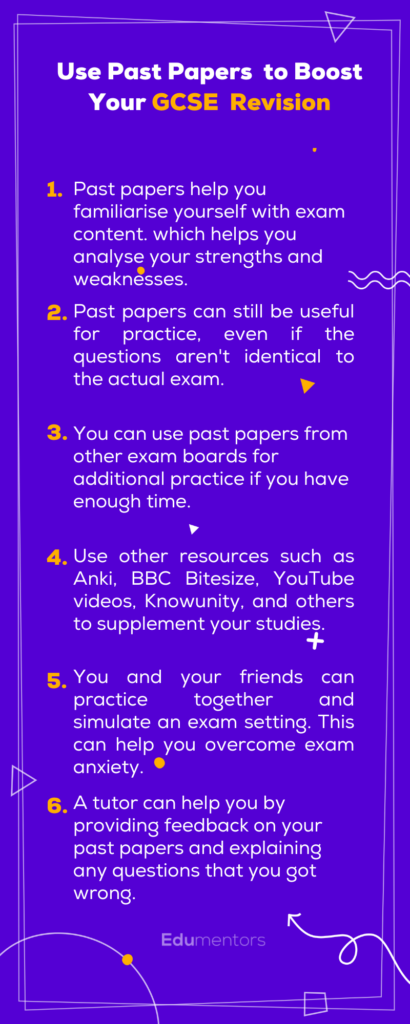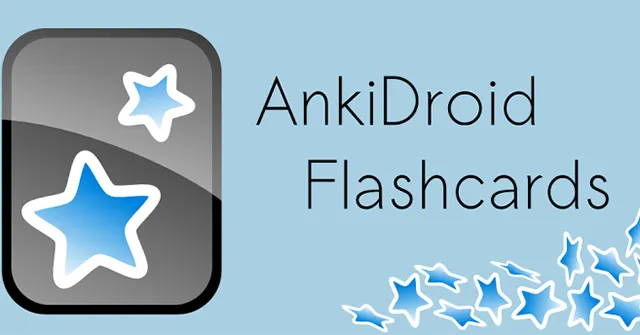Table of Contents:
Cambridge International
Cambridge International IGCSE Mathematics Core
Paper 11
Paper 12
Paper 13
Paper 31
Paper 32
Paper 33
Cambridge International IGCSE Mathematics Extended
Paper 21
Paper 22
Paper 23
Paper 41
Paper 42
Paper 43
Pearson Edexcel
Pearson Edexcel IGCSE Maths – Foundation Tier
Paper 1F
| Question Paper | Mark Scheme |
| June 2018 | June 2018 |
| January 2019 | January 2019 |
| June 2019 | June 2019 |
| November 2020 | November 2020 |
| November 2021 | November 2021 |
| January 2022 | January 2022 |
Paper 1FR
| Question Paper | Mark Scheme |
| June 2018 | June 2018 |
| January 2019 | January 2019 |
| June 2019 | June 2019 |
| November 2020 | November 2020 |
| November 2021 | November 2021 |
| January 2022 | January 2022 |
Paper 2F
| Question Paper | Mark Scheme |
| June 2018 | June 2018 |
| January 2019 | January 2019 |
| June 2019 | June 2019 |
| November 2020 | November 2020 |
| November 2021 | November 2021 |
| January 2022 | January 2022 |
Paper 2FR
| Question Paper | Mark Scheme |
| June 2018 | June 2018 |
| January 2019 | January 2019 |
| June 2019 | June 2019 |
| November 2020 | November 2020 |
| November 2021 | November 2021 |
| January 2022 | January 2022 |
Pearson Edexcel IGCSE Maths – Higher Tier
Paper 1H
| Question Paper | Mark Scheme |
| June 2018 | June 2018 |
| January 2019 | January 2019 |
| June 2019 | June 2019 |
| November 2020 | November 2020 |
| November 2021 | November 2021 |
| January 2022 | January 2022 |
Paper 1HR
| Question Paper | Mark Scheme |
| June 2018 | June 2018 |
| January 2019 | January 2019 |
| June 2019 | June 2019 |
| November 2020 | November 2020 |
| November 2021 | November 2021 |
| January 2022 | January 2022 |
Paper 2H
| Question Paper | Mark Scheme |
| June 2018 | June 2018 |
| January 2019 | January 2019 |
| June 2019 | June 2019 |
| November 2020 | November 2020 |
| November 2021 | November 2021 |
| January 2022 | January 2022 |
Paper 2HR
| Question Paper | Mark Scheme |
| June 2018 | June 2018 |
| January 2019 | January 2019 |
| June 2019 | June 2019 |
| November 2020 | November 2020 |
| November 2021 | November 2021 |
| January 2022 | January 2022 |
FAQ About IGCSE Maths

What is IGCSE Maths?
IGCSE Maths refers to the International General Certificate of Secondary Education (IGCSE) Mathematics program, which is a comprehensive curriculum designed for students aged 14-16. It is one of the most popular qualifications in the world, recognised by universities and employers globally. The IGCSE Maths program covers a wide range of mathematical topics, including algebra, geometry, trigonometry, probability, and statistics. The curriculum is structured to build a strong foundation of mathematical knowledge and skills, and to prepare students for higher-level studies in mathematics and related fields. The IGCSE Maths program is offered by various exam boards, such as Cambridge Assessment International Education, Pearson Edexcel, and Oxford AQA. Students who complete the IGCSE Maths program typically take an exam at the end of the course to earn a certificate.
Who is IGCSE Maths for?
IGCSE Maths is intended for students who want to develop their mathematical skills and knowledge. It is suitable for students who are interested in pursuing further studies in mathematics or related fields, as well as for those who want to gain a good foundation in mathematics to support their studies in other subjects. IGCSE Maths is designed to be challenging, but it is also accessible to students with varying levels of ability. Whether you are aiming for a career in mathematics or simply want to develop your problem-solving skills, IGCSE Maths can provide a solid foundation for your future studies and career.
What is covered in the IGCSE Maths syllabus?
The IGCSE Maths syllabus covers a wide range of mathematical topics and skills. It includes the study of numbers, algebra, geometry, trigonometry, statistics, and probability. Students will learn about basic concepts such as arithmetic operations, equations, graphs, and measurements. They will also explore more advanced topics such as quadratic equations, coordinate geometry, calculus, and data analysis. The syllabus aims to develop students’ problem-solving and analytical skills while providing them with a strong foundation in mathematical principles.
What are the benefits of studying IGCSE Maths?
Studying IGCSE Maths can offer several benefits to students. Some of the benefits of studying IGCSE Maths are:
- Strong foundation in Mathematics. IGCSE Maths syllabus is designed to provide a strong foundation in Mathematics, which can be useful for students pursuing further studies in Mathematics, Science or Engineering.
- Improved problem-solving skills. The IGCSE Maths curriculum involves solving a variety of mathematical problems, which can help students improve their problem-solving skills.
- Increased employability. Students who have studied IGCSE Maths are often considered to have a higher level of numeracy, which can increase their employability in fields such as finance, engineering, and data analysis.
- International recognition. IGCSE Maths is recognized internationally by universities and employers, which can open up opportunities for students to study or work abroad.
- Preparation for higher-level exams. Studying IGCSE Maths can also prepare students for higher-level exams such as A-levels, IB, and Advanced Placement (AP) exams, which are often required for admission to top universities.
How is IGCSE Maths assessed?
IGCSE Maths is assessed through a combination of internal and external assessments. The internal assessments are carried out by the teacher and are usually in the form of coursework or practical assessments. The external assessments are set and marked by the Cambridge Assessment International Education board.
There are two external assessment components in IGCSE Maths – the written examination and the non-exam assessment. The written examination is divided into two papers, each lasting 2 hours. The non-exam assessment is a practical assessment that requires students to solve problems using their mathematical skills and understanding.
The written examination contributes 80% to the overall grade, while the non-exam assessment contributes the remaining 20%. The written examination assesses students’ knowledge, skills, and understanding across a range of topics, while the non-exam assessment focuses on their ability to apply their knowledge and skills to solve problems.
What's the difference between GCSE maths and IGCSE Maths?
The main difference between GCSE Maths and IGCSE Maths is their assessment structure. GCSE Maths is assessed primarily through terminal exams, while IGCSE Maths includes coursework and practical assessments as well as exams. Additionally, IGCSE Maths is designed to be more internationally recognised and flexible in terms of curriculum, allowing for more options in terms of subject choices and assessments. Furthermore, IGCSE Maths often includes a wider range of mathematical concepts and applications compared to GCSE Maths, making it a more comprehensive course for students interested in pursuing higher-level studies in mathematics.
How can I prepare for IGCSE Maths?
Preparing for IGCSE Maths can be a challenging task, but with the right approach, you can make significant progress. Here are some tips on how to prepare for IGCSE Maths:
- Familiarise yourself with the syllabus. Start by familiarising yourself with the IGCSE Maths syllabus. Go through the topics covered in the syllabus and understand the concepts, formulas, and equations.
- Practice. IGCSE Maths requires a lot of practice. Do as many practice questions as possible, and work through past papers to understand the exam format and types of questions.
- Seek help when needed. If you encounter any difficulties with a concept or topic, seek help from your teacher, IGCSE tutor, or classmates.
- Stay organised. Stay organised by keeping track of your notes, practice questions, and progress. Create a study schedule that works for you and stick to it.
- Use resources. Utilise online resources such as Khan Academy, revision guides, and other educational websites to supplement your learning.
- Take breaks: Take breaks to avoid burnout and give your brain a chance to rest and recharge.
By following these tips, you can effectively prepare for IGCSE Maths and increase your chances of success on the exam.
Can I take IGCSE Maths as a private candidate?
Yes, you can take IGCSE Maths as a private candidate. Private candidates are students who are not enrolled in a school or educational institution and choose to take the exams independently. However, there may be certain requirements and procedures that you need to follow depending on the exam board and the country where you are taking the exams.
To take IGCSE Maths as a private candidate, you may need to register with the appropriate exam board, pay the exam fees, and find a test center where you can take the exams. It is important to research and understand the requirements and procedures for private candidates in your specific situation to ensure a smooth registration and exam-taking process.
What are the entry requirements for IGCSE Maths?
The entry requirements for IGCSE Maths may vary depending on the exam board or institution offering the qualification. However, typically, there are no formal entry requirements for IGCSE Maths. Students who wish to take the exam are expected to have a good understanding of basic mathematical concepts and skills, as well as proficiency in the English language, as the exam is conducted in English.
It is important to note that some institutions or exam boards may have specific requirements or recommendations, such as a minimum age limit or completion of certain prerequisite courses. It is recommended to check with the institution or exam board offering the qualification for their specific entry requirements.








